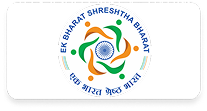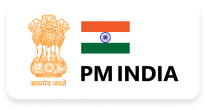About Films Wing
Films Wing deals all matters relating to film viz. promoting production, dissemination, and preservation of filmic content including organization of International Film Festival of India, other national and international film festivals, sanctioning of films, granting film shooting permission, holding National Film Awards are handled in Films Wing. Films Wing is divided in Films Wing-I and Films Wing-II and each wing has 03 desks which are as under:
Films Wing-I
- F(C) Desk –
a. All matters relating to Central Board of Film Certification Board.
b. Cinematograph Act, 1952, Cinematograph (Certification) Rules, 2024 and Cinematograph (Adjudication of Penalty) Rules, 2024
c. All disciplinary cases not having vigilance angle in respect of Officers/Staff of Media Unit(s) controlled by F(C) Desk
d. Review of cases under FR 56(J) in respect of Officers and Staff belonging to non-Organized Cadres working in Media Unit(s) controlled by the Desk
e. All the matters relating to NFDC - NFAI, Pune
f. Matters related to Video Piracy
g. Parliament Questions/Assurances, Court Cases, VIP/MP/PMO references, audit objections and all other ancillary works on the above subjects
h. Exemption of films from certification process
i. Any other office related work entrusted by superiors in time of exigency
- F(I) Desk –
a. World Audio Visual Entertainment Summit (WAVES)
b. Matters related to National Centre of Excellence for Animation, Gaming & Visual Effects and Extended Reality (NCoE)
c. Work related to Animation Visual Effects Gaming Extended Reality (AVGC-XR) policy
d. Work related to Create in India Mission for AVGC-XR Sector
e. All matters relating to Film Industry, Film Organizations, and Film Society etc.
f. Work related to India Cine Hub (ICH)
g. Audio-Visual Co-Production Agreements with various countries
h. Incentives for foreign film shooting in India and co-production
i. Permission to foreign film makers to shoot feature films in India.
j. Exemption of Customs duties to temporary imported films/DVDs arriving for exhibition in various states
k. Work related to production of documentary films, children’s films and various regional language films
l. Grant for promotion of films selected at film festivals and The Academy Awards
m. Exhibition of Children’s Films in Schools
n. Parliament Questions/Assurances, Court Cases, VIP/MP/PMO references, audit objections and all other ancillary works on the above subjects
- F(F) Desk –
a. National Film Awards (NFA)
b. International Film Festival of India (IFFI)
c. International Childrens Film Festival of India (ICFFI)
d. Mumbai International Film Festival
e. All matters relating to organization of National Film Festivals, Film Weeks, etc. in India.
f. All matters relating to budget proposals to DCDFC Scheme, including Grants-in-Aid to NGOs for organizing Film Festivals in India.
g. Participation in Film Markets/Film Bazaar, domestic or international.
h. Any kind of participation in and organizing international or domestic film festivals
i. Parliament Questions/Assurances, Court Cases, VIP/MP/PMO references, audit objections and all other ancillary works on the above subjects
j. Any other office related work entrusted by superiors in time of exigency
Films Wing-II
- F(FTI) Desk –
a. Setting up of Film and Television Institute (FTI) in Arunachal Pradesh
b. Appointment of President of FTII Society and Non-official Members of FTII Society
c. Appointment of President of SRFTI Society and Non-official Members of SRFTI Society
d. Appointment of Director, FTII
e. Appointment of Director, SRFTI
f. According ‘Deemed University status’ to FTII and SRFTI
g. Laying of Annual Report of FTII and SRFTI in the Parliament
h. Creation of 84 Posts of FTI, Arunachal Pradesh and 32 posts of EDM Wing of SRFTI, Kolkata
i. Release of Grant-in-Aid to FTII and SRFTI under Other Central Expenditure
j. Signing of MoU between Ministry of I&B and FTII/SRFTI
k. Processing of foreign visit proposals of officers of FTII and SRFTI
l. All administrative matters relating to FTII and SRFTI - F(A) Desk –
a. Implementation of the decision of the Union Cabinet on merger of Film Media Units
b. Redeployment of surplus staff who are placed in Surplus Staff Establishment (SSE) in consultation with DoPT.
c. Special VRS to surplus staff, who opted for the scheme.
d. Establishment matter of Surplus Staff Establishment viz. Utilization of services of surplus staff, clarification on all administrative issues raised by SSE viz. MACP, accommodation, CGHS, retirement on superannuation, TA. etc.
e. Annual Plan/Plan Schemes/Budget Proposals for Surplus Staff Establishment.
f. Court cases of SSE arising out on the matter of redeployment and other issue after merger.
g. Abolition of posts of Film Media Units viz. Films Division, DFF and NFAI and abolition of posts in Surplus Staff Establishment.
h. Closure of Branch Offices of Films Division and transfer of its space etc. to NFDC/other Media Units in this Ministry.
i. Issue clarification to borrowing Media Units where 95 staff are redeployed.
j. Monitoring and granting approval of para-wise comments/counter affidavit in 34 court cases (32 Films Division and 02 CFSI) earlier dealt by FD and CFSI on various issues viz. Pay parity, promotion, disciplinary cases/vigilance cases, commercial agreement etc.
k. All disciplinary cases and Vigilance cases pending with erstwhile Films Division and CFSI.
l. Various Audit paras related to Films Division and CFSI.
m. Framing of policy guidelines on Public Service Awareness films of Govt. of India.
n. Theatrical release of PSA films received from various Ministries/ Departments and PMO.
o. Various pending issues with erstwhile Films Division and CFSI.
p. Exhibition of Films in Mahadev Road Auditorium
q. All Parliament matters, President Office/PMO/MPs/VIPs references, Standing / Consultative Committee references/ Implementation of PAC recommendations/, RTI matters, Grievance Petition, co-ordination with PMS Section, PPC Section, Admin Section , Economic Wing, Finance Wing, Rajbhasha Section on different issues.
- F(PSU) Desk –
a. All administrative and financial matters relating to National Film Development Corporation.
b. All proposal for maintenance of assets and establishment expenditure of merged 4 films media units i.e. DFF, FD, CFSI & NFAI.
c. Signing of MoU as per DPE guidelines for evaluating performance of NFDC per financial year. Examination of performance evaluation report of NFDC as per signed MoU.
d. Compliance of Corporation governance guidelines - quarterly examination of reports and submission to DPE, M/o Finance.
e. Laying of Annual Reports & Audited Accounts and MoU in both the houses of Parliament, Materials for Annual report of Ministry pertaining to NFDC.
f. Providing various information to DPE pertaining to NFDC like corporate governance guidelines, PE survey, CAPEX of NFDC etc.
g. General Parliament matters like SCIT, Study visit by MPs, Board meetings of NFDC, Annual General meeting/Extra-ordinary General meeting of NFDC, VIP/MP references, Parliament questions, various information sought by PC, Policy Planning Cell, Parliament Cell etc, RTI, Information regarding Monthly D.O. to be sent to Finance Secretary & Secretary (Expenditure), Information regarding guarantees given by NFDC.
National Centre of Excellence (NCoE)
The genesis of NCoE may be traced back to 12th Plan Scheme and the Hon’ble Finance Minister in her budget announcement during FY 2014-15 said “a National Centre of Excellence (NCoE) in Animation, Gaming and Special Effects will be set up”. The objective is to create world-class talent pool in India to cater to the Indian as well as global industry, to set-up an incubation centre for the AVGC-XR sector and to provide opportunities for small players to grow. It is supposed to offer UG, PG, level courses and short term courses in different disciplines of AVGC-XR sector at affordable cost and promote research in the AVGC-XR sector by offering research-intensive programmes. NCoE as envisioned by the Ministry would be an independent, industry-led institution which not only would provide employment to the youth, but also respond to the skilling requirements of the industry.
The NCoE has been formally named the Indian Institute of Creative Technologies (IICT) and registered as a Section 8 Company under the Companies Act, 2013 with a onetime budgetary support of Rs. 391.15 crore. The company was incorporated on 25.12.2024, with a shareholding structure of 48% by the Government of India, and 26% each by FICCI and CII, who represent the collective interests of the AVGC-XR industry. The IICT will operate on a 10-acre plot at Dada Saheb Phalke Film City, Goregaon, Mumbai, for which a lease deed was signed between the Ministry of Information & Broadcasting and the Government of Maharashtra on 08.10.2024.
World Audio Visual & Entertainment Summit (WAVES)
WAVES is a premier global event that brings together the entire Media and Entertainment (M&E) sector. It aims to connect India's M&E industry with the global market, fostering growth, collaborations, and innovations. The first edition of the World Audio Visual & Entertainment Summit (WAVES) will be organized in 2025, in India by the National Film Development Corporation under the aegis of the Ministry of Information & Broadcasting supported by the Indian Industry associations in the sector.
WAVES aims to provide impetus to the India M&E sector growth by bringing together minister-led delegations, global and Indian industry leaders, policymakers, M&E industry and its innovators to explore opportunities, address challenges and shape the future of the M&E industry. The Global M&E industry includes Films, TV, Broadcast, Print, Radio, News, New Media, Advertising, Animation, VFX, Gaming & E-sports, AR/VR/XR, Music, LIVE events etc.
As a precursor to WAVES, various associations and organizations are hosting Create in India Challenge: Season 1. This initiative offers a platform for talented individuals to showcase their skills in the fields of Animation, Visual Effects, Gaming, Comics and Extended Reality. For more information on Create in India Challenge: Season 1 please click here: Create in India challenge Season 1
Major Components of WAVES
- Global Media Dialogue: Interaction of Ministers and key policymakers dealing with the Media and Entertainment sector across the globe.
- Thought Leaders Track: Plenary sessions, Conferences and Breakout sessions
- Exhibition: Pavilions by M&E industries, showcasing both Indian and Global innovation and latest trends, fostering B2B, B2C, B2G collaborations and opportunities for Investment in India, Immersive & Experiential Zones, Gaming Arcade.
- WAVES Bazaar: An industry led marketplace for identifying business partners for tie-ups. Convergence of Buyers and Sellers from different countries across the globe.
- WaveXcelerator: Investment opportunity for Startups in the M&E sector and live pitching sessions.
- Bharat Pavilion: Celebrating the journey of Bharat from its ancient cultural heritage of storytelling & presenting it in its future-ready Avatar.
- CreatoSphere: Masterclasses & Workshops, Creators Conclave, Grand Finale of Create in India Challenges
- Cultural Events: Cultural events by Global and Indian performers.
For more information on WAVES, please click here: WAVES Website
Animation Visual Effects Gaming Comics & Extended Reality(AVGC-XR)
The Union Budget had announced the constitution of a Task force on AVGC-XR to identify interventions to build domestic capacity for serving our markets and the global demand. The Task Force is an effort to realise the Prime Minister’s vision of developing the AVGC-XR sector so as to provide immense employment opportunities to the youth who can serve the global market. The AVGC-XR Task Force was constituted under the Chairmanship of the then Secretary, Ministry of I & B, Shri Apurva Chandra, to help realize the full potential of the AVGC-XR sector in India, with key stakeholders from the Industry and the Government. Secretaries of associated Union Ministries viz. Ministry of Skill development and Entrepreneurship (MSDE), Department of Higher Education, Ministry of Electronics and Information Technology & Department for Promotion of Industry and Internal Trade were members of this Task Force. It also included members from State Governments of Karnataka, Maharashtra, Telangana; heads of education bodies such as All India Council of Technical Education, National Council of Educational Research and Training and representatives of industry bodies - Media & Entertainment Skills Council, Federation of Indian Chambers of Commerce and Industry and Confederation of Indian Industry.
Further, the Task Force had key industry leaders of AVGC-XR Sector as members, viz. Shri Biren Ghosh (Country Head, Technicolor India); Shri Ashish Kulkarni (Founder, Punaryug Artvision Pvt. Ltd.); Shri Jesh Krishna Murthy (Founder and CEO Anibrain); Shri Keitan Yadav, (COO and VFX Producer, Redchillies VFX); Shri Chaitanya Chinchlikar (Chief Technology Officer, Whistling Woods International); Shri Kishore Kichili (Sr. Vice President and Country Head, Zynga India) and Shri Neeraj Roy (Managing Director and CEO of Hungama Digital Media Entertainment).
Four Sub-Task Forces
Four Sub-Task Forces were constituted for devising strategies of growth through targeted interventions in their respective areas,
- Industry & Policy headed by Shri Apurva Chandra, then Secretary, Ministry of Information & Broadcasting;
- Education headed by Shri Anil Shahashrabudhe, then Chairperson AICTE;
- Skilling headed by Shri Rajesh Aggarwal, then Secretary, Ministry of Skill Development and Entrepreneurship and;
- Gaming headed by Shri Vikram Sahay, then Joint Secretary, Ministry of Information & Broadcasting. Their recommendations have formed the basis of the consolidated report of the Task Force.
1st National Workshop on AVGC-XR
The Ministry of Information and Broadcasting organized the First National Workshop and Consultation on Draft AVGC-XR Policies at Vigyan Bhawan, New Delhi, for industry, academia & the government on 18th April, 2023. There was forthcoming participation from several Government bodies of both Centre & State level stakeholders related to AVGC-XR, along with the industry associations & industry leaders of the AVGC-XR sector. The workshop was inaugurated by Shri Apurva Chandra, then Secretary, Ministry of I&B and Chairman AVGC-XR Taskforce. He spoke about the Ministry’s efforts to strengthen the AVGC-XR (Animation, Visual Effects, Gaming & Comics - Extended Reality) sector in India and emphasised that the States also put in their best efforts to benefit from the growth of the AVGC-XR sector.
Some lighthouse states of AVGC-XR shared their learnings and best practices during the course of the workshop, which is envisaged to provide guidance to other states, including helping them in drafting state-level AVGC-XR policies. The sessions covered during the workshop were envisioned to help states gain clarity on various aspects of the State AVGC-XR policy, thereby enabling them in drafting state level policies. Representatives of various leading companies and industry bodies working in the M&E and AVGC-XR space participated in the workshop and shared their insights on promoting the sector in the country
National Film Development Corportaion(NFDC)
National Film Development Corporation
The National Film Development Corporation Limited (NFDC) was set up by the Government of India in 1975 with the primary objective of planning, promoting and organizing an integrated and efficient development of the Indian Film Industry in accordance with the National economic policy and objectives laid down by the Central Government from time to time. In 1980, Film Finance Corporation and Indian Motion Picture Export Corporation were merged with NFDC. Pursuant to the decision of the Government of India dated 23 December 2020 to merge four film media units viz. Films Division (FD), Directorate of Films Festivals (DFF), National Film Archive of India (NFAI) and Children’s Film Society, India (CFSI) with National Film Development Corporation Limited (NFDC), all functions of CFSI, FD,DFF, NFAI are merged to NFDC.
Now, NFDC as a fully integrated film development corporation, is poised to empower the growth of the Indian film ecosystem and facilitate development, production, promotion and preserve the rich heritage of films across various Indian languages.
The link of the website is mentioned below: https://www.nfdcindia.com/
India Cine Hub(ICH)
The Ministry of Information & Broadcasting, Government of India, set up the India Cine Hub (ICH) under the National Film Development Corporation (NFDC) with a view to promote and facilitate film shootings by foreign filmmakers in India. The services rendered by the India Cine Hub (ICH) have now been extended to Indian filmmakers as well.
ICH acts as a single-window facilitation and clearance mechanism that eases filming in India, as well as endeavoring to create a film-friendly ecosystem and promoting the country as a filming destination. More details on ICH can be found at ICH Website
Film Certification- CBFC
Central Board of Film Certification (CBFC) is a statutory body under the Ministry of Information and Broadcasting, regulating the public exhibition of films under the provisions of the Cinematograph Act 1952.
Films can be publicly exhibited in India only after they have been certified by the Central Board of Film Certification.
The Board consists of non-official members (12 to 25) and a Chairman (all of whom are appointed by Central Government) and functions with headquarters at Mumbai. It has nine regional offices, one each at Mumbai, Kolkata, Chennai, Bangalore, Thiruvananthapuram, Hyderabad, New Delhi, Cuttack and Guwahati. A regional facilitation office of CBFC has been recently set up in Chandigarh. The Regional Offices are assisted in the examination of films by Advisory Panels. The members of the panels are nominated by Central Government by drawing people from different walks of life.
The Certification process is in accordance with The Cinematograph Act, 1952, The Cinematograph (certification) Rules, 1983, and the guidelines issued by the Central government u/s 5 (B).
The link of the website is mentioned below:
e-cinepramaan portal of CBFC:
The Online Certification System of CBFC ‘e-cinepramaan’ came into force on 1st April, 2017. The system of CBFC aims at transparency and ease of doing business. The move is an important step towards making the CBFC office paper less and also to enable effective monitoring and real time progress tracking for both CBFC officials and the producers. Film certification is now a time bound and transparent process
Film Institutes
Film and Television Institute of India (FTII)
The Film Institute of India was set up by the Government of India in 1960 under the Ministry of Information & Broadcasting. Following the addition of the Television Wing in 1971, the Institute was renamed as Film and Television Institute of India (FTII). The Institute was registered as a Society in October, 1974 under the Societies’ Registration Act, 1860. The FTII Society consists of eminent personalities connected with Film, Television, Communication, Culture, Alumni of the Institute and ex-Officio Government Members. The Institute is governed by a Governing Council, headed by Chairman. The academic policies of the Institute are formulated by the Academic Council. The matters involving finance are controlled by the Standing Finance Committee
The Institute consists of two Wings: Film and Television, which offer courses in both Film and Television. The Three-Year Courses lead to award of Post Graduate Diploma in Direction & Screenplay Writing, Cinematography, Sound Recording & Sound Design, Editing and Art Direction & Production Design. The Institute also offers a Two-Year Post Graduate Diploma Course in Screen Acting and Screen Writing (Film, TV & Web Series). The Television Courses consist of One-Year Post Graduate Certificate Course with specializations in TV Direction, Electronic Cinematography, Video Editing, Sound Recording & TV Engineering. The Institute is also conducting Three-Year UG Certificate Course in Animation and VFX Design.
FTII, Pune has started short-term courses since May, 2017 to provide affordable and accessible quality cinema literacy across the country by a new initiative: Skilling India in Film and Television (SKIFT) in association with State Governments/Universities/Educational Institutes. In the year 2020-21, this initiative has been renamed as Centre For Open Learning (CFOL) under which various offline and online short courses, including weekend and evening courses are being conducted.
Department of Higher Education, Ministry of Education has issued Letter of Intent dated 28.08.2024 to FTII. In the Letter of Intent, Department of Higher Education, on the advice of UGC, has asked FTII to fulfil certain conditions within a period of three years before conferment of Institution Deemed to be University status to FTII under ‘Distinct Category’
The link of the website is mentioned below:
Satyajit Ray Film & Television Institute (SRFTI)
Satyajit Ray Film & Television Institute (SRFTI), Kolkata was established by the Government of India in 1995 as an autonomous educational institution under the Ministry of Information & Broadcasting and was registered under West Bengal Societies Registration Act, 1961. Located at Kolkata and named after the legendary film maestro, Satyajit Ray, SRFTI provides higher and professional education and technical expertise in the art and technique of film-making and television production.
The Institute offers 3-year post-graduate programme in 6 (six) specializations in films - (1) Direction & Screenplay Writing, (2) Cinematography, (3) Editing, (4) Sound Recording & Design, (5) Producing for Film & Television and (6) Animation Cinema and 2-year Post Graduate Diploma Programme in Electronic & Digital Media (EDM) in 6 (six) specializations - (1) Electronic and Digital Media Management, (2) Cinematography for Electronic and Digital Media, (3) Writing for Electronic and Digital Media, (4) Direction and Producing for Electronic and Digital Media, (5) Editing for Electronic and Digital Media and (6) Sound for Electronic and Digital Media.
In addition to regular classes, the students of the Institute are also enriched with the Master Classes by various Guest Lecturers, Workshops, Seminars, etc. conducted by Industry experts. SRFTI has succeeded in articulating and disseminating classical and contemporary theories of praxis for the creative minds to leap into the world of professional practice, be it mainstream, parallel, art-house, experimental or non-fiction narratives. The Institute has crossed many milestones towards a new paradigm of the art and craft of filmmaking.
Department of Higher Education, Ministry of Education has issued Letter of Intent dated 28.08.2024 to SRFTI. In the Letter of Intent, Department of Higher Education, on the advice of UGC, has asked SRFTI to fulfil certain conditions within a period of three years before conferment of Institution Deemed to be University status to SRFTI under ‘Distinct Category’.
The link of the website is mentioned below:
Film and Television Institute (FTI), Arunachal Pradesh
As part of the Government’s initiatives for the overall development of North Eastern Region of the country and to encourage talent among youngsters of the North East in the sector of film and television, the Ministry is establishing the Film and Television Institute in the North Eastern Region at Arunachal Pradesh on similar lines to that of Film and Television Institute of India (FTII), Pune and Satyajit Ray Film & Television Institute (SRFTI), Kolkata.
Foundation Stone of FTI, Arunachal Pradesh was laid by the Hon’ble Prime Minister of India on 09.02.2019. A temporary campus has been started at Itanagar where foundation courses are being offered to the students belonging to North Eastern Region. ‘A Short Trip of Cinema’, a ten-week duration short course on the Aesthetics of Cinema, is organized in a temporary campus. The course has been designed with basics such as Film Direction & Screenplay, Cinematography, Editing, Sound Recording & Design, and Producing for Film. Six short-term courses from various specializations and disciplines were conducted after its commencement from March, 2017.
The aim of the course is:
- Cinema in India is a very vast field that offers definite career options in its various departments and the same can be pursued after completion of the course.
- The knowledge imparted for the ‘basic apparatus’ and ‘sensibility’ required in making films.
- Students after completing the program will be able to chart a path for them to pursue filmmaking as a profession and accordingly choose a graduate and a postgraduate program that will empower them further in reaching their goal.
FTI, Arunachal Pradesh offers three unique two-year postgraduate diploma courses in Screen Acting, Screen Writing and Documentary Cinema for the upcoming academic session. The Institute aims to support students in making informed decisions about their future goals through a cutting-edge curriculum.
The Institute consists of 21 building blocks, out of which 11 are residential building blocks and 10 academic buildings. The structural work including civil infrastructure, electric and water supply is almost complete by the CPWD.
The link of the website is mentioned below:
Film Festivals
International Film Festival of India (IFFI):
International Film Festival of India (IFFI) is the only film festival in South Asia that is accredited by International Federation of Film Producers’ Associations (FIAPF) in Competitive Feature Films Category.
Since its inception in 1952, IFFI has been curating spectacular films from all over the world. Its goal is to provide a single platform for ambitious filmmakers, cineastes, and industry professionals to have access to excellent cinema from across the world.
IFFI’s International Cinema section is an assortment of culturally and aesthetically remarkable films from around the world. It has kept its stature high by committing to promote art by showcasing the international films of the year shortlisted by the eminent members associated with the Film Industry. Since 2004, IFFI has moved to its permanent venue at Goa, where it is jointly organized each year by National Film Development Corporation (NFDC), Ministry of Information and Broadcasting, Government of India and Entertainment Society of Goa (ESG).
The link of the website is mentioned below:
Film Bazaar:
Film Bazaar was initiated by the National Film Development Corporation (NFDC) in 2007 and has evolved into South Asia's global film market. It is organized every year alongside the prestigious International Film Festival of India (IFFI) in Goa.
Film Bazaar is a converging point for South Asian and international filmmakers and film producers, sales agents, and festival programmers for potential creative and financial collaboration. Over the course of 5 days, the festival focuses on discovering, supporting, and showcasing South Asian content and talent in filmmaking, production, and distribution. The Bazaar also encourages the sales of world cinema in the South Asian region.
The Online Film Bazaar initiative was launched at the International Film Festival of India, 2024. The innovative platform serves as a virtual hub for global buyers and sellers to connect, exchange ideas, and drive the business of cinema forward.
The link of the website is mentioned below:
Mumbai International Film Festival (MIFF):
Mumbai International Film Festival (MIFF) is the oldest and largest film festival for non-feature films in South Asia, which began in 1990 and was earlier organized by the Films Division, Ministry of Information & Broadcasting, Government of India. Now it is organized by the National Film Development Corporation, Ministry of Information & Broadcasting, Government of India.
The link of the website is mentioned below:
Participation by India:
Ministry of Information and Broadcasting participates in various international film festivals around the globe to showcase and promote Indian cinema and its soft power. The objective behind the participation is to promote Indian films across linguistic cultural and regional diversity to forge an increasing number of international partnerships in the realms of distribution, co-production, production in India, filming in India, script development and technology, thereby, accelerating the growth of film sector and generation of employment in India.
Other festivals:
Ministry also provides financial assistance to the NGO/festival organizers for organization of film festivals on the recommendation of state under Development, Communication & Dissemination of Filmic Content (DCDFC) scheme
National Film Awards
Ministry confers National Film Awards every year for Feature Films, Non-Feature Films, Best writing on Indian Cinema and the prestigious Dadasaheb Phalke Award. Once the recommendation of NFA Jury is received and the names of awardees are announced, the National Film Awards Presentation Ceremony is held at Vigyan Bhawan, New Delhi, as per the convenience of Hon’ble President of India. The 70th National Film Awards for the year 2022 was conferred on 08.10.2024 at Vigyan Bhawan, New Delhi by the Hon’ble President of India.













